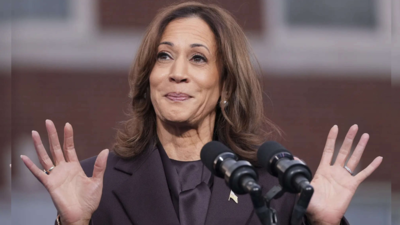
Weeks after her election defeat, Vice President Kamala Harris continues to solicit donations through frequent fundraising emails. Critics claim the aggressive approach is alienating supporters while raising questions about her campaign’s financial management.
Emails from Harris’ team, dubbed the “Harris Fight Fund,” have urged donors to contribute immediately, warning of the urgent need to counteract President-elect Donald Trump’s nominations and policies.
According to the New York Post, one email received chastised recipients, stating, “Our records show that you haven’t pitched in yet. We know the election didn’t turn out as we’d hoped, but we’re not backing down.”
Harris’ campaign, which raised $1.5 billion over 15 weeks, ended with an alleged $20 million in debt, according to insiders cited by Politico. However, Harris’ team disputes these claims.
Critics, including Democratic strategist Jon Reinish, argue that the non-stop appeals are “galling” and potentially damaging to the party. “Getting fundraising requests after a candidate has lost, especially when they’re millions in debt, is insulting,” The New York Post quoted Reinish.
The Harris campaign’s spending choices have also come under scrutiny. Notable expenditures included $1 million to Oprah Winfrey’s Harpo Productions, $900,000 for advertising on the Las Vegas Sphere, and millions on private jets and luxury hotels.
Over half a billion dollars was channelled to four media consulting firms.
James Carville, a longtime Democratic insider, called for an audit of Harris’ campaign finances. “When you have an airplane crash, you don’t just move on. You investigate what went wrong,” The New York Post quotes him. Carville also added that detailed scrutiny is required beyond Federal Election Commission disclosures.
Some Democrats fear Harris’ fundraising tactics could alienate small-dollar donors, a key pillar of the party’s funding. “This kind of tone erodes trust,” Politico qouted Democratic digital strategist Mike Nellis.
James Zogby, a DNC member, has also voiced concerns, describing the fundraising tone as “begging” and calling for greater financial transparency within the Democratic Party.
The emails cite ongoing recount efforts and legal challenges as reasons for continued fundraising. However, the fine print reveals that most funds raised flow to the Democratic National Committee (DNC) and state-level affiliates rather than the recount account. This practice, while legal, has sparked further debate.
The controversy comes ahead of the February 1 election for the next DNC chair, who will oversee the party’s financial direction post-Biden. Candidates like Minnesota DFL Chair Ken Martin and former Maryland Governor Martin O’Malley are expected to address the issue.
Zogby, running for DNC vice chair, advocates for a financial oversight committee to monitor party spending. “Where does the money go, and why don’t we know where it goes?” he told Politico.
Despite criticism, Harris remains active in the Democratic fundraising landscape and is reportedly considering another presidential run in 2028. For now, her campaign emails continue to ask donors to “build a foundation of resources” to hold the Trump administration accountable.






